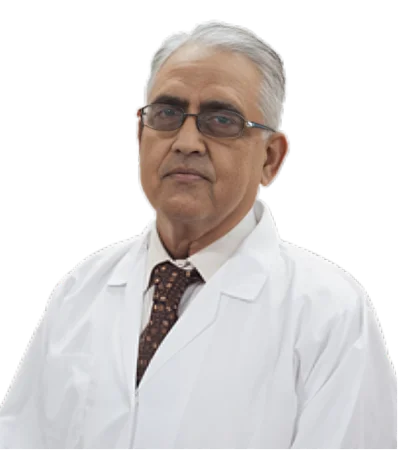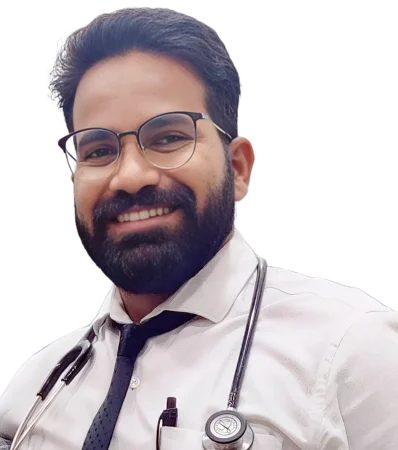Appendectomy Surgery
Advanced Techniques for Safe and Efficient Removal of the Appendix
Appendectomy is an essential procedure that is performed surgically to treat appendicitis. It is an irritation of the appendix which could cause grave complications if not addressed promptly. The Chirayu Super Speciality Hospital offers appendectomy services. We offer a range of expert appendectomy treatments that are designed to offer effective relief from appendicitis as well as speedy recovery. Our highly trained team of medical specialists and surgeons utilize modern techniques and cutting-edge technology to ensure the best standard of care. From the initial consultation to the recovery following surgery We are committed to providing individualized, caring care to ensure the highest results of our patients.

What is Appendectomy Surgery?
Appendectomy is the elimination of appendix, which is a tiny tube-shaped organ found within the lower right abdomen. The procedure is generally performed to treat appendicitis which is a condition that causes inflammation or an infection of the appendix. This may result in severe abdominal pain nausea and vomiting, and could result in serious complications, such as Peritonitis, or an abscess. There are two major methods for appendectomy:
- Open Appendectomy : Traditional approach requires a longer incision on the abdomen to reach and eliminate the appendix. This procedure is generally used for more complex cases or when laparoscopic surgery isn’t practical.
- Laparoscopic Appendectomy : A minimally-invasive method in which your appendix will be eliminated by multiple small incisions with the laparoscope (a thin flexible tube that has camera). This procedure has advantages including less postoperative pain, less recovery times, and less scarring.
Who Performs Your Surgery?
Appendectomy surgeries at our clinic are conducted by highly experienced general surgeons who have special experience in procedures for the abdominal. Our surgeons are committed to using the most advanced methods and maintaining the most advanced standards of medical care. We collaborate closely with nurses, anesthesiologists as well as other specialists to provide the best possible treatment for every patient. Each member of our staff is committed to providing individual treatment and answering any questions you might have prior to, during, or after the procedure.
Types of Appendectomy Surgery
- The Open Appendectomy : This method requires making a bigger cut to reach and remove the appendix. It is often required for difficult appendicitis situations or when laparoscopic procedures are not appropriate. This technique can be successful by allowing easy accessibility to appendix however it can cause a longer recovery time.
- Laparoscopic Appendectomy : This minimally-invasive procedure utilizes small incisions as well as a laparoscope to take out the appendix. The procedure can be associated with less postoperative discomfort along with faster recovery time and fewer scars when compared to open appendectomy. Laparoscopic appendectomy is usually preferred due to its lower effect on the body of the patient and the overall time to recover.
Symptoms Indicating the Need for Appendectomy
- Abdominal pain that is severe, and particularly in that lower left side.
- Persistent nausea and vomiting.
- A loss of appetite as well as general aches.
- Chills and fever.
- The tenderness or swelling of the abdomen.
- Trouble with bowel movements as well as gas passage.
- These signs could be indicative of appendicitis. A prompt surgical intervention is vital to avoid complications.
Diagnosis for Appendectomy
Apendicitis is a condition that starts with a thorough medical history and physical exam to determine the degree and area of abdominal discomfort. The diagnostic tests include:
- Colonoscopy : The purpose of this procedure is to visualise the colon in order to determine if any other medical conditions could be responsible for the symptoms.
- Imaging studies : Ultrasounds or CT scans can be used to view the appendix and to confirm the presence of inflammation or an infection.
- Blood tests : To evaluate overall health and to detect indications of inflammation or infection.
Treatment Process
Appendectomy is done under general anesthesia in order to ensure that the patient is asleep and pain-free throughout the procedure. The decision between open and laparoscopic appendectomy is based on aspects like the condition of the patient as well as the surgeon’s evaluation. The appendix that is inflamed is removed and the incisions are then closed by staples or sutures. The procedure typically lasts between 30 minutes and one hour. Following the procedure the patient is monitored in the recovery area prior to being discharged, usually within a couple of days. The management of pain, wound care and gradual reintroduction back to routine activities are essential aspects of postoperative treatment.
Care and Recovery After Surgery
Postoperative care includes the monitoring of any signs of complications, and also ensuring the an adequate healing process for surgical sites. Patients usually leave within a couple of days, based on their procedure and the individual’s recovery. Treatment for pain is provided to ensure patient comfort. patients are provided with instructions for treatment of the wound, limitations on activity and diet adjustments. Laparoscopic surgery typically leads to shorter recovery times, allowing patients to return to normal activities faster. A regular follow-up appointment is scheduled regularly to assess the progress of recovery and address any issues.
Advantages of Choosing Our Surgery Services
Emergency Surgical Care
Immediate and effective treatment of appendicitis with a focus on quick and safe removal.
Laparoscopic Techniques
Minimally invasive appendectomy reduces recovery time and post-surgical pain.
Patient-Centered Care
Dedicated team ensuring prompt diagnosis, surgery, and follow-up for the best outcomes.
What Our Patients Say
Read about our patients positive experiences and how Chirayu Super Speciality Hospital has positively impacted their health and well-being.


From the initial consultation to my recovery, the entire experience was positive. The team was supportive and professional throughout.


Choosing laparoscopic surgery made all the difference. My recovery was fast, and the scars are barely noticeable.


The care I received before, during, and after my surgery was top-notch. I felt supported throughout my recovery.


My appendectomy at Chirayu was efficient and virtually pain-free. The team was exceptional, and I recovered quickly.
Meet Our Medical Specialists
Our skilled surgeons provide expert appendectomy care with advanced techniques for optimal results and a smooth recovery experience.
Frequently Asked Questions
Here, we provide answers to some of the most commonly asked questions to help you better understand about our surgery services. If you have any additional questions, please do not hesitate to contact us.
Diagnosis involves a physical examination, imaging tests (ultrasound or CT scan), and blood tests to confirm inflammation.
Appendectomy is needed when a patient has appendicitis, which can cause severe pain and lead to complications if untreated.
There are open appendectomy and laparoscopic appendectomy, with laparoscopic being minimally invasive and often preferred for quicker recovery.
The surgery involves removing the inflamed appendix through an incision. Laparoscopic surgery uses smaller incisions and specialized tools.
Appendectomy is the surgical removal of the appendix to treat appendicitis, an inflammation or infection of the appendix.



